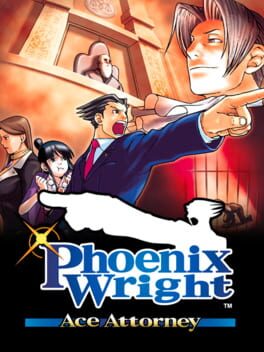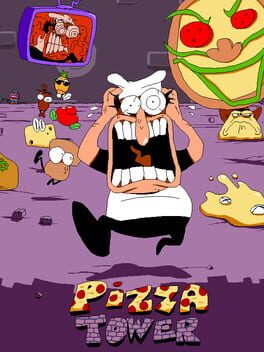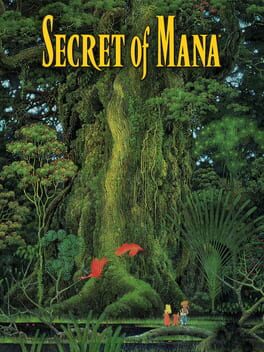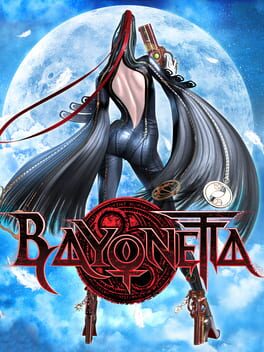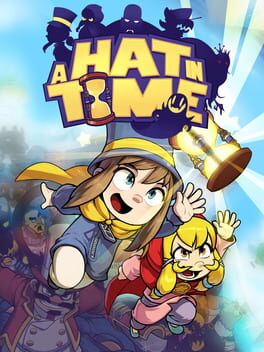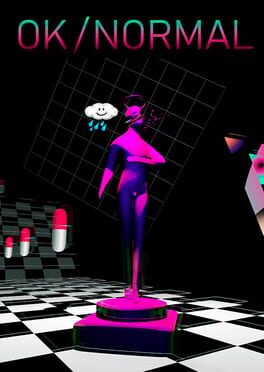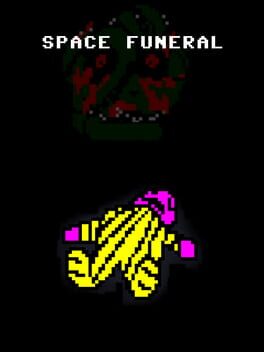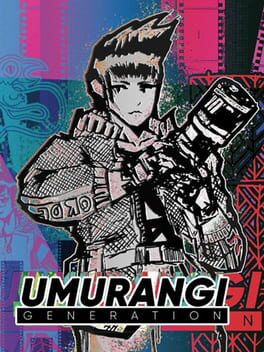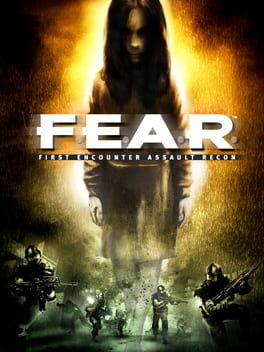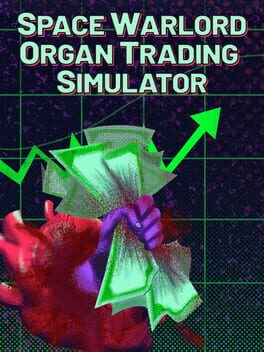Goffers
2023
In spite of the slow and clunky movement, the tedious sidequests and poor aiming controls, RE4R shines as an excellent Survival Horror experience that, while providing an overall weaker experience compared to the original, still manages to surpass RE4 in a few surprising ways. Once I got used to the control quirks, I had a blast with this game, because the core of it is incredibly fun, and it boasts some smart additions to the formula that shake up the gameplay enough to be interesting without just feeling like RE4 all over again. Tighten up the controls a bit and I would honestly rate it a 10/10 in the gameplay department, but unfortunately Capcom made some big changes in other places as well.
I cannot forgive is the neutered writing. Capcom has abandoned every overly-wacky aspect of the original game in order to fit it more in line with this new series of remakes, and that's a horrible mistake in my opinion. The new versions of these characters are all great in execution (except Ada who gives a boring performance and also just isn't a character I've ever cared for anyway) but the lack of the original's dumb quibbling and campiness makes this a net-negative in the writing department. What Capcom has yet to realize is that the overarching aspects of this series story are trite and boring, the execution of the story is what makes it fun, and these remakes, in spite of fleshing out their cast, have sucked the soul out of Resident Evil.
There's an early scene in this remake which implies Leon as having some PTSD from RE2, and understandable reaction to what he went through. But then it never gets brought up again, a plot point of zero consequence brought in to make Leon seem more....I don't know, relatable? Not fully serious zombie drama, and not campy zombie flick either, Capcom has landed on the most boring middle-ground possible, which is a shame because I think that RE7 and 8 were largely a step in the right direction with this stuff. I'm actually quite shocked that the insanely charming shooting mini-game even made it into what is otherwise meant to be a more serious game. Hearing your partners cheer you on and hearing the merchant lose his shit as you get a high score was the highlight of the game for me, and I would've gladly welcomed this silliness into the game more often.
RE4R is a fantastic action game, but ultimately I left it feeling that it was afraid of actually BEING RE4. Most of the one-liners are removed, there's no giant robot Salazar, the castle is neutered of its silly swinging blade and trap ceilings, no boulder-out running, nor laser-flipping. Ashley can't be too annoying or yell and scream too much and the villains can't call you on your radio to spit petty insults at you because we don't want to annoy any players. Resident Evil is now a series that wants to be taken seriously, and it'll purge anything it deems "too goofy" in order to alienate as little of its audience as possible. The best it'll manage is some occasional quips from the good guys, and then it's back to business as usual.
If the original game is a self-aware singularity of action movie tropes forming the ultimate parody, then RE4R is simply one of the movies the original was parodying to begin with.
I cannot forgive is the neutered writing. Capcom has abandoned every overly-wacky aspect of the original game in order to fit it more in line with this new series of remakes, and that's a horrible mistake in my opinion. The new versions of these characters are all great in execution (except Ada who gives a boring performance and also just isn't a character I've ever cared for anyway) but the lack of the original's dumb quibbling and campiness makes this a net-negative in the writing department. What Capcom has yet to realize is that the overarching aspects of this series story are trite and boring, the execution of the story is what makes it fun, and these remakes, in spite of fleshing out their cast, have sucked the soul out of Resident Evil.
There's an early scene in this remake which implies Leon as having some PTSD from RE2, and understandable reaction to what he went through. But then it never gets brought up again, a plot point of zero consequence brought in to make Leon seem more....I don't know, relatable? Not fully serious zombie drama, and not campy zombie flick either, Capcom has landed on the most boring middle-ground possible, which is a shame because I think that RE7 and 8 were largely a step in the right direction with this stuff. I'm actually quite shocked that the insanely charming shooting mini-game even made it into what is otherwise meant to be a more serious game. Hearing your partners cheer you on and hearing the merchant lose his shit as you get a high score was the highlight of the game for me, and I would've gladly welcomed this silliness into the game more often.
RE4R is a fantastic action game, but ultimately I left it feeling that it was afraid of actually BEING RE4. Most of the one-liners are removed, there's no giant robot Salazar, the castle is neutered of its silly swinging blade and trap ceilings, no boulder-out running, nor laser-flipping. Ashley can't be too annoying or yell and scream too much and the villains can't call you on your radio to spit petty insults at you because we don't want to annoy any players. Resident Evil is now a series that wants to be taken seriously, and it'll purge anything it deems "too goofy" in order to alienate as little of its audience as possible. The best it'll manage is some occasional quips from the good guys, and then it's back to business as usual.
If the original game is a self-aware singularity of action movie tropes forming the ultimate parody, then RE4R is simply one of the movies the original was parodying to begin with.
This review contains spoilers
Coming back to this game after almost a decade kinda had me questioning why I looked back on the cases on display so fondly. Maybe it's because it was the first game of its kinda I had played, but on replaying this I found the writing to be all over the place. Rather than a more complete review I just wanted to go case-by-case.
The first case is fine, a good intro to the series and since it's the first case in the series I don't really have any hangups on it being so short and simple.
The second case loses me entirely. I remember being very shocked at the death of Mia when I first played, but in retrospect her death was WAY too premature for the game's own good. The entire case hinging on Mia needing to possess her sister just to tell Phoenix to LOOK AT THE OTHER SIDE OF A RECEIPT is dumb as hell, and I don't think Phoenix being a rookie is a good enough excuse for this level of stupidity. Redd White is built up as this giant force that has the police and the courts at his beck-and-call, but ultimately he proves to be shockingly incompetent and ends up being wasted potential.
Not much to say about Case 3, for better or for worse. I think it's a decent mystery and I don't really mind having an unrelated case to break the tension.
Cases 4 and 5 are pretty good in my opinion. Not because the mystery itself was particularly well-executed, but because of the characters of Edgeworth and Manfred Von Karma just being so damn entertaining to watch. Von Karma is a cartoon villain which makes for an appropriate end to the first game. I think the final cases tie things up nicely and create a nice, neat arc for Edgeworth, so I'd say it ends on a high note.
I did however have a frustrating moment when trying to recall how Manfred killed Gregory; it made sense to me that Von Karma would seek to intentionally seek out and remove the second bullet from the crime-scene in order to implicate Miles as the murderer, but when I tried to go down that line of thinking I ended up with a game over because the game wanted me to figure out the FAR more outlandish theory that the second bullet was IN Von Karma's shoulder this whole time. It just goes to show that Ace Attorney isn't really about being a good detective, but just about picking the right item and trying to guess what insane theory Phoenix is thinking that will ultimately turn out to be right. I'm sure most people can relate to this frustration if they've ever played these games, and it's unfortunate that the player can figure out the mystery too early and be railroaded while the cast plays catch-up, or that you could come up with a theory that makes perfect sense, only for the game to shoot you down with no explanation.
The bonus case is probably my favorite on offer and it really feels like Damon Gant is the type of character that Redd White should've been; a cunning man with the law at his disposal, and working with Edgeworth to bring him down feels way better than Mia giving you the answer.
Overall though I think what carries Phoenix Wright isn't the quality of it's writing, but rather it's characters and how they interact. Edgeworth's stuffiness peeling away to reveal a vulnerable, flawed man. Phoenix's go-get-em attitude as he basically stumbles his way through each case by bidding for time and throwing out theories he knows is wrong. Maya's bubbly personality and how she riffs off of Nick. Von Karma's regal demeanor being revealed to be a cover for his more immature, bitter side. Gumshoe being a well-meaning idiot and his bromance with Edgeworth. And the Judge being a loveable moron who has NO right being the judge of anything. This wonderful cast comes together to create a fun story that wraps together nicely. It may be the most inaccurate depiction of any sort of justice system committed to a game, but it's a game I have a REALLY hard time disliking.
The first case is fine, a good intro to the series and since it's the first case in the series I don't really have any hangups on it being so short and simple.
The second case loses me entirely. I remember being very shocked at the death of Mia when I first played, but in retrospect her death was WAY too premature for the game's own good. The entire case hinging on Mia needing to possess her sister just to tell Phoenix to LOOK AT THE OTHER SIDE OF A RECEIPT is dumb as hell, and I don't think Phoenix being a rookie is a good enough excuse for this level of stupidity. Redd White is built up as this giant force that has the police and the courts at his beck-and-call, but ultimately he proves to be shockingly incompetent and ends up being wasted potential.
Not much to say about Case 3, for better or for worse. I think it's a decent mystery and I don't really mind having an unrelated case to break the tension.
Cases 4 and 5 are pretty good in my opinion. Not because the mystery itself was particularly well-executed, but because of the characters of Edgeworth and Manfred Von Karma just being so damn entertaining to watch. Von Karma is a cartoon villain which makes for an appropriate end to the first game. I think the final cases tie things up nicely and create a nice, neat arc for Edgeworth, so I'd say it ends on a high note.
I did however have a frustrating moment when trying to recall how Manfred killed Gregory; it made sense to me that Von Karma would seek to intentionally seek out and remove the second bullet from the crime-scene in order to implicate Miles as the murderer, but when I tried to go down that line of thinking I ended up with a game over because the game wanted me to figure out the FAR more outlandish theory that the second bullet was IN Von Karma's shoulder this whole time. It just goes to show that Ace Attorney isn't really about being a good detective, but just about picking the right item and trying to guess what insane theory Phoenix is thinking that will ultimately turn out to be right. I'm sure most people can relate to this frustration if they've ever played these games, and it's unfortunate that the player can figure out the mystery too early and be railroaded while the cast plays catch-up, or that you could come up with a theory that makes perfect sense, only for the game to shoot you down with no explanation.
The bonus case is probably my favorite on offer and it really feels like Damon Gant is the type of character that Redd White should've been; a cunning man with the law at his disposal, and working with Edgeworth to bring him down feels way better than Mia giving you the answer.
Overall though I think what carries Phoenix Wright isn't the quality of it's writing, but rather it's characters and how they interact. Edgeworth's stuffiness peeling away to reveal a vulnerable, flawed man. Phoenix's go-get-em attitude as he basically stumbles his way through each case by bidding for time and throwing out theories he knows is wrong. Maya's bubbly personality and how she riffs off of Nick. Von Karma's regal demeanor being revealed to be a cover for his more immature, bitter side. Gumshoe being a well-meaning idiot and his bromance with Edgeworth. And the Judge being a loveable moron who has NO right being the judge of anything. This wonderful cast comes together to create a fun story that wraps together nicely. It may be the most inaccurate depiction of any sort of justice system committed to a game, but it's a game I have a REALLY hard time disliking.
2023
Watching the sparse trailers leading up to release and not much else, I definitely expected this game to lean way more into it's Wario Land inspirations. Don't get me wrong, the game is very much a love-letter to Wario Land, 4 especially, but I definitely wasn't expecting as much high-speed platforming out of this game. Pizza Tower feels like a cross between Wario Land 4 and something akin to the Sonic Advance games, and honestly I think that result is way more interesting than if the game played it safe and just made a straight-forward Wario Land successor.
The stages are great and each have a fun central mechanic to differentiate them (I especially loved the Golf level and the FNAF parody.) They introduce an interesting mechanic, flesh it out a bit and then end the level before any sort of fatigue settles in, and the escape sequence is one of the most genius ways to end a platforming level while testing the player's memory of the level, and it will always blow my mind this mechanic wasn't adopted much after WL4. Combined with the excellent high speed controls it gives Pizza Tower a breakneck pacing that keeps up all the way through to the finale. The animation also sells this frantic energy with its fluid 90s gross-out cartoon style and ,combined with the powerups, (usually contextualized as something terrible happening to Peppino) really sells this as a wacky adventure with a protagonist who is equal parts bumbling idiot and acrobatic master. I also think this game makes great use of it's status as an unrated indie game, allowing the game to dive into weird, crude or disturbing imagery that Wario Land 4 could never fully commit to due to its status as a Nintendo game, but always hinted at. Oh and the music is fucking insane, utilizing some great sampling and maintaining a high energy throughout the whole game, the escape theme especially is one of the catchiest songs I've heard in a game.
The bosses were also surprisingly fun and represented the biggest difficulty spikes in the game. I spent an embarrassing amount of time on a couple of these bosses, but they all felt fair and had a lot of charm, the third and fourth bosses especially. I almost wish there were bosses that made better use of the powerups in a unique way, but I also appreciate the relatively straightforward battles as a way of breaking up the platforming.
My only major gripe with the game is that, while incredibly fluid and fun, the controls felt unreliable at times. I played with a Dualshock 4 and encountered quite a few bad inputs, partly due to my own incompetence, but also because I think this game has very sensitive controls which don't play too nice with a joystick or the crummy dpad a lot of modern controllers have. This feels more like a game made for the binary inputs of a keyboard, but I just don't like playing 2d platformers on a keyboard, so I'm left having to choose between multiple less-than-ideal control schemes. If controller settings got tweaked or I found a controller that suited the game better, I'd have zero issues bumping this up to five stars and really commiting to P-ranking every stage, but as it is now I think that would frustrate me more than anything.
Overall though this is a stellar 2D platformer and an excellent love letter to Wario Land 4 that, at times, surpasses its inspiration and feels like a true evolution of that game's formula. I think Wario Land 4 had the slightly better stages and was a little more consistently enjoyable, but coming up a hair short of one of the best 2D platformers EVER is really not something to shake a stick at.
The stages are great and each have a fun central mechanic to differentiate them (I especially loved the Golf level and the FNAF parody.) They introduce an interesting mechanic, flesh it out a bit and then end the level before any sort of fatigue settles in, and the escape sequence is one of the most genius ways to end a platforming level while testing the player's memory of the level, and it will always blow my mind this mechanic wasn't adopted much after WL4. Combined with the excellent high speed controls it gives Pizza Tower a breakneck pacing that keeps up all the way through to the finale. The animation also sells this frantic energy with its fluid 90s gross-out cartoon style and ,combined with the powerups, (usually contextualized as something terrible happening to Peppino) really sells this as a wacky adventure with a protagonist who is equal parts bumbling idiot and acrobatic master. I also think this game makes great use of it's status as an unrated indie game, allowing the game to dive into weird, crude or disturbing imagery that Wario Land 4 could never fully commit to due to its status as a Nintendo game, but always hinted at. Oh and the music is fucking insane, utilizing some great sampling and maintaining a high energy throughout the whole game, the escape theme especially is one of the catchiest songs I've heard in a game.
The bosses were also surprisingly fun and represented the biggest difficulty spikes in the game. I spent an embarrassing amount of time on a couple of these bosses, but they all felt fair and had a lot of charm, the third and fourth bosses especially. I almost wish there were bosses that made better use of the powerups in a unique way, but I also appreciate the relatively straightforward battles as a way of breaking up the platforming.
My only major gripe with the game is that, while incredibly fluid and fun, the controls felt unreliable at times. I played with a Dualshock 4 and encountered quite a few bad inputs, partly due to my own incompetence, but also because I think this game has very sensitive controls which don't play too nice with a joystick or the crummy dpad a lot of modern controllers have. This feels more like a game made for the binary inputs of a keyboard, but I just don't like playing 2d platformers on a keyboard, so I'm left having to choose between multiple less-than-ideal control schemes. If controller settings got tweaked or I found a controller that suited the game better, I'd have zero issues bumping this up to five stars and really commiting to P-ranking every stage, but as it is now I think that would frustrate me more than anything.
Overall though this is a stellar 2D platformer and an excellent love letter to Wario Land 4 that, at times, surpasses its inspiration and feels like a true evolution of that game's formula. I think Wario Land 4 had the slightly better stages and was a little more consistently enjoyable, but coming up a hair short of one of the best 2D platformers EVER is really not something to shake a stick at.
2012
Not finished yet but just found it funny how
P4 fans seeing Yosuke or Teddy being obsessive and excessively forward towards a girl: "What a couple of creeps, why are they so annoying?"
P4 fans seeing Rise being obsessive and excessively forward towards the MC: "WAOW! BEST GIRL!"
(This is not an endorsement of Yosuke or Teddy btw they are truly awful)
P4 fans seeing Yosuke or Teddy being obsessive and excessively forward towards a girl: "What a couple of creeps, why are they so annoying?"
P4 fans seeing Rise being obsessive and excessively forward towards the MC: "WAOW! BEST GIRL!"
(This is not an endorsement of Yosuke or Teddy btw they are truly awful)
2017
If one were to come up with a "golden rule" for making video games, I think the most commonly applicable mantra would be this:
Games should feel good to play, and they should be fair.
Hard to disagree with on the surface, and it's a rule that, in 99% of games, wouldn't steer you wrong. But assigning "rules" to art is tenuous at best. Filmmakers, musicians, writers, artists of all kind have long since learned the lesson that breaking conventions and established rules can be valuable in evoking certain emotions. Filmmakers have broken basic rules of shot composition to create a feeling of unease or intentional confusion, dissonance can have its value in music, and one may argue that traditional art may not have moved much past realism if not for artists pushing the boundaries of the medium to better present the intended emotion of a piece. Not every piece of art should be enjoyable to experience at all times, because life itself isn't always enjoyable to experience.
Rain World is a game which understands the value that can be created in not being enjoyable. Rain World is unfair, not because the developers didn't balance the game correctly, but because they understood that as soon as they started making concessions for the player, the ecosystem they created would cease to feel believable, and the world would become the same as nearly every other game; a space made for the player, in service of an enjoyable experience. If enemies arbitrarily ceased attacking you as you changed screens or adhered to specific patrols and behaviors they would no longer feel like inhabitants of this world, but instead merely obstacles meant to be overcome.
To be totally fair to Rain World’s detractors, there are two stances one could take in opposition to this unfairness that I see as valid concerns:
1. Players with any sort of accessibility concerns may be completely incapable of completing Rain World due to its indifferent approach to fairness - I sympathize heavily with anyone who simply cannot complete Rain World due to conditions out of their control. The game added the Monk character which goes a decent way towards making the experience easier for players, but this "easy mode" character doesn't fundamentally change the way the world works, it just makes those moments of unfairness less frequent.
2. Related to my previous point, video games are the only medium which are largely active experiences. You may find an aspect of a film upsetting in some form, but you can take solace in the fact that so long as you don't shut it off or walk out of the theatre you will see the ending to the movie, you don't need any sort of active input to see the credits roll. This isn't a promise kept for video games because many of them require some direct input from the player to reach the ending, so therefore some consideration should be made to allowing the player to reach the ending of a game. I don't think that buying a game somehow entitles you to experience it in full without trying, but I also understand the idea that at the very least, the obstacles presented to the player should be ones they can overcome with their own skill, rather than left to the whims of an unfair system.
As a side note, Rain World may not seem to be very fair, but at the very least it has two concessions made in the players favor; that you can respawn at all flies in the face of the idea behind making a believable ecosystem but I think we can all agree that it’s a necessary concession, and that you can see when enemies are coming through pipes in advance to avoid getting killed by something you had zero chance of seeing.
Yet barring those small concessions, Rain World is indifferent to your plights, and because of this, it approaches a level of realism that beats out the almost lifelike graphics and shallow survival systems of triple A games. Navigating this world is truly treacherous and yet, because of this, it creates some of the most satisfying moments I’ve experienced in a game, none of which are scripted. Escaping the jaws of a salamander through a well-placed spear to its face, out-swimming a massive sea monster, befriending a group of scavengers and helping them fight off a dangerous vulture are all satisfying and memorable because you know that the game didn’t lean in your favor in the slightest, you accomplished these things by yourself using your knowledge, survival skills and wit.
It also helps immensely that the music is appropriately foreboding and suits the drop-dead GORGEOUS art of the game. Seriously, Rain World is probably the best looking 2D game I’ve ever played, all the realism in its mechanics would have been utterly wasted if the art hadn’t been up to snuff but thankfully, it compliments the gameplay perfectly. I also want to give a small shoutout to the ending sequence which, without spoilers, left me in a state of complete awe and was the perfect capstone to the experience.
I can completely understand why many find this game frustrating, but to me it’s proof that this medium has so much room to grow and expand. Gaming is a very new form of art, so seeing indie games like Rain World be willing to push the boundaries of the medium gives me hope that maybe the art form isn’t as doomed to homogenization as I thought. As usual, the indies continue to push art forward, while the big companies are content with stagnation.
Games should feel good to play, and they should be fair.
Hard to disagree with on the surface, and it's a rule that, in 99% of games, wouldn't steer you wrong. But assigning "rules" to art is tenuous at best. Filmmakers, musicians, writers, artists of all kind have long since learned the lesson that breaking conventions and established rules can be valuable in evoking certain emotions. Filmmakers have broken basic rules of shot composition to create a feeling of unease or intentional confusion, dissonance can have its value in music, and one may argue that traditional art may not have moved much past realism if not for artists pushing the boundaries of the medium to better present the intended emotion of a piece. Not every piece of art should be enjoyable to experience at all times, because life itself isn't always enjoyable to experience.
Rain World is a game which understands the value that can be created in not being enjoyable. Rain World is unfair, not because the developers didn't balance the game correctly, but because they understood that as soon as they started making concessions for the player, the ecosystem they created would cease to feel believable, and the world would become the same as nearly every other game; a space made for the player, in service of an enjoyable experience. If enemies arbitrarily ceased attacking you as you changed screens or adhered to specific patrols and behaviors they would no longer feel like inhabitants of this world, but instead merely obstacles meant to be overcome.
To be totally fair to Rain World’s detractors, there are two stances one could take in opposition to this unfairness that I see as valid concerns:
1. Players with any sort of accessibility concerns may be completely incapable of completing Rain World due to its indifferent approach to fairness - I sympathize heavily with anyone who simply cannot complete Rain World due to conditions out of their control. The game added the Monk character which goes a decent way towards making the experience easier for players, but this "easy mode" character doesn't fundamentally change the way the world works, it just makes those moments of unfairness less frequent.
2. Related to my previous point, video games are the only medium which are largely active experiences. You may find an aspect of a film upsetting in some form, but you can take solace in the fact that so long as you don't shut it off or walk out of the theatre you will see the ending to the movie, you don't need any sort of active input to see the credits roll. This isn't a promise kept for video games because many of them require some direct input from the player to reach the ending, so therefore some consideration should be made to allowing the player to reach the ending of a game. I don't think that buying a game somehow entitles you to experience it in full without trying, but I also understand the idea that at the very least, the obstacles presented to the player should be ones they can overcome with their own skill, rather than left to the whims of an unfair system.
As a side note, Rain World may not seem to be very fair, but at the very least it has two concessions made in the players favor; that you can respawn at all flies in the face of the idea behind making a believable ecosystem but I think we can all agree that it’s a necessary concession, and that you can see when enemies are coming through pipes in advance to avoid getting killed by something you had zero chance of seeing.
Yet barring those small concessions, Rain World is indifferent to your plights, and because of this, it approaches a level of realism that beats out the almost lifelike graphics and shallow survival systems of triple A games. Navigating this world is truly treacherous and yet, because of this, it creates some of the most satisfying moments I’ve experienced in a game, none of which are scripted. Escaping the jaws of a salamander through a well-placed spear to its face, out-swimming a massive sea monster, befriending a group of scavengers and helping them fight off a dangerous vulture are all satisfying and memorable because you know that the game didn’t lean in your favor in the slightest, you accomplished these things by yourself using your knowledge, survival skills and wit.
It also helps immensely that the music is appropriately foreboding and suits the drop-dead GORGEOUS art of the game. Seriously, Rain World is probably the best looking 2D game I’ve ever played, all the realism in its mechanics would have been utterly wasted if the art hadn’t been up to snuff but thankfully, it compliments the gameplay perfectly. I also want to give a small shoutout to the ending sequence which, without spoilers, left me in a state of complete awe and was the perfect capstone to the experience.
I can completely understand why many find this game frustrating, but to me it’s proof that this medium has so much room to grow and expand. Gaming is a very new form of art, so seeing indie games like Rain World be willing to push the boundaries of the medium gives me hope that maybe the art form isn’t as doomed to homogenization as I thought. As usual, the indies continue to push art forward, while the big companies are content with stagnation.
1993
I am fully convinced that every single person that touts this game as one of the greatest of all time or an underrated SNES gem is playing an elaborate trick on me, it has to be nostalgia, right? I've been trying to fully play through this game for more than a decade now, and every single time I bounce off it once I remember how bad the whole thing feels.
The visuals might be quaint and charming and the music might be some of the best of the era, but after being stunlocked to death for the fifth time in an hour, or getting softlocked because the AI companion got stuck in a way that made it impossible for me to correct or free them, or after said companions getting insta-killed by an enemy leaves me without the magic I need to spam in order to even stand a chance with this godforsaken combat system, I have to wonder if it's worth suffering through such a fundamentally broken game just to experience some nice music, decent visuals and a mediocre story told through a translation that leaves me not even sure what's going on half the time.
In my case, it is not worth it, not even slightly. I'm glad some people can look past the flaws and enjoy the positive aspects, but for me, this game is one of the most janky, unwieldy experiences I've ever had. I'll probably get gaslit into trying it again a couple months from now.
The visuals might be quaint and charming and the music might be some of the best of the era, but after being stunlocked to death for the fifth time in an hour, or getting softlocked because the AI companion got stuck in a way that made it impossible for me to correct or free them, or after said companions getting insta-killed by an enemy leaves me without the magic I need to spam in order to even stand a chance with this godforsaken combat system, I have to wonder if it's worth suffering through such a fundamentally broken game just to experience some nice music, decent visuals and a mediocre story told through a translation that leaves me not even sure what's going on half the time.
In my case, it is not worth it, not even slightly. I'm glad some people can look past the flaws and enjoy the positive aspects, but for me, this game is one of the most janky, unwieldy experiences I've ever had. I'll probably get gaslit into trying it again a couple months from now.
2009
Bayonetta, solely as a character-action game is a little mixed for me. I think the actual combat mechanics are superb, but the campaign is riddled with too many interruptions to that gameplay for me to get as invested in the combat as I would with other games in the genre. There are some encounters that felt less fair than others in service of "mixing things up", and the half-baked SHMUP sections aren't very interesting.
But I think all of that feels like a footnote to the game, because Bayonetta's biggest strength is spectacle. The art direction is gorgeous, the pacing is breakneck, and the game is constantly one-upping itself in terms of setpieces and bosses, culminating in a final stretch that trumps any of its contemporaries in terms of delivering an ending as fun and exciting as its preceedings. In a time where DMC was having something of an identity crisis, Bayonetta burst into the scene with the confidence of a series that had been around for decades, to the point where it made Capcom's efforts with DMC seem almost quaint (I still love DMC4 regardless!).
It might not have fully won my heart mechanically, but that didn't stop it from being an experience unlike any other. The constant fighting and comparisons of Bayo vs. DMC will probably never end, but I think the important takeaway is that Platinum created a game capable of standing alongside the Devil May Cry series with its own appeal and identity, rather than just making an uninspired copy. Very excited to play 2 and 3!
But I think all of that feels like a footnote to the game, because Bayonetta's biggest strength is spectacle. The art direction is gorgeous, the pacing is breakneck, and the game is constantly one-upping itself in terms of setpieces and bosses, culminating in a final stretch that trumps any of its contemporaries in terms of delivering an ending as fun and exciting as its preceedings. In a time where DMC was having something of an identity crisis, Bayonetta burst into the scene with the confidence of a series that had been around for decades, to the point where it made Capcom's efforts with DMC seem almost quaint (I still love DMC4 regardless!).
It might not have fully won my heart mechanically, but that didn't stop it from being an experience unlike any other. The constant fighting and comparisons of Bayo vs. DMC will probably never end, but I think the important takeaway is that Platinum created a game capable of standing alongside the Devil May Cry series with its own appeal and identity, rather than just making an uninspired copy. Very excited to play 2 and 3!
2022
This game could go down as one of the all-time greats of the survival horror genre. I absolutely adored its general visual style (though the pretty anime eyes of the characters sometimes detracted from certain scenes), the music, the worldbuilding, and the story.
However, while I think the gameplay is, from a purely mechanical standpoint, solid and a great translation of the oldschool RE formula to the modern day, I think the game is just too damn janky in execution. Full disclosure; I played this game on a Dualshock 4 on PC with Xbox Gamepass. For all I know some of these issues come from that, but I don't know for sure. I would be entirely unsurprised if these issues stemmed from Xbox's absolute dogshit app. If it turns out these issues are caused by my setup or the launcher I'm using, then I hope this review can at least serve as a showcase of how much Xbox Gamepass can absolutely butcher the experience of otherwise great games.
The amount of damage I took in this game because of glitches, weird item interactions and aiming bugginess is like, way too much for me to ignore. The game seems to be super finicky in terms of what angle and distance you need to be from an item/door to interact with it. Many times, I ended up taking a bunch of damage because I wasn't facing a door at the exact right angle to go through it, or because I was fighting the controls to pick up the key item I needed in a room. Other glitches included enemies disappearing completely as I shot at them, sub-items such as the stunprod not activating when I hit the button, enemies attacking me mid-reload animation and leaving me unsure if the weapon actually reloaded, and missing shots despite being locked on, or sometimes failing to lock-on at all despite the gun being pointed at the enemy.
On the non-technical side of things I really only have one flaw; I think the inventory management crosses a line in this game. The amount of items being handed out to you is WAY too many for only 6 inventory slots, especially considering some puzzles require up to 6 puzzle components to be solved. I don't think anything would've been lost bumping the inventory limit to 8, and also making items like the eye camera and flashlight permanent upgrades rather than physical items in your inventory. I'm all for item management, and think it's an integral part to the experience of games like this, but I think for Signalis, it became more of an annoyance rather than a tense, strategic part of the core gameplay.
I REALLY hope these issues are exclusive to my machine or the Gamepass app because if they are I will go buy some other version and replay it immediately. It could be one of the best horror games I've ever played, but as it stands now it's an enjoyable, but deeply flawed game.
However, while I think the gameplay is, from a purely mechanical standpoint, solid and a great translation of the oldschool RE formula to the modern day, I think the game is just too damn janky in execution. Full disclosure; I played this game on a Dualshock 4 on PC with Xbox Gamepass. For all I know some of these issues come from that, but I don't know for sure. I would be entirely unsurprised if these issues stemmed from Xbox's absolute dogshit app. If it turns out these issues are caused by my setup or the launcher I'm using, then I hope this review can at least serve as a showcase of how much Xbox Gamepass can absolutely butcher the experience of otherwise great games.
The amount of damage I took in this game because of glitches, weird item interactions and aiming bugginess is like, way too much for me to ignore. The game seems to be super finicky in terms of what angle and distance you need to be from an item/door to interact with it. Many times, I ended up taking a bunch of damage because I wasn't facing a door at the exact right angle to go through it, or because I was fighting the controls to pick up the key item I needed in a room. Other glitches included enemies disappearing completely as I shot at them, sub-items such as the stunprod not activating when I hit the button, enemies attacking me mid-reload animation and leaving me unsure if the weapon actually reloaded, and missing shots despite being locked on, or sometimes failing to lock-on at all despite the gun being pointed at the enemy.
On the non-technical side of things I really only have one flaw; I think the inventory management crosses a line in this game. The amount of items being handed out to you is WAY too many for only 6 inventory slots, especially considering some puzzles require up to 6 puzzle components to be solved. I don't think anything would've been lost bumping the inventory limit to 8, and also making items like the eye camera and flashlight permanent upgrades rather than physical items in your inventory. I'm all for item management, and think it's an integral part to the experience of games like this, but I think for Signalis, it became more of an annoyance rather than a tense, strategic part of the core gameplay.
I REALLY hope these issues are exclusive to my machine or the Gamepass app because if they are I will go buy some other version and replay it immediately. It could be one of the best horror games I've ever played, but as it stands now it's an enjoyable, but deeply flawed game.
2022
Maybe I'm making a big deal over nothing but I feel like having your "seemingly normal program that becomes more creepy as you play" immediately begin with spooky ambient noise blaring in the background kinda just serves to remind me how manufactured the whole thing is.
For me, having the game be silent aside from the sounds of the computer and the map application itself would've created a better sense of stumbling into something you shouldn't have in an otherwise normal program, rather than trying to unsettle me with spooky noise from the get-go. If you want to make a game about a seemingly normal thing becoming unsettling, I think non-diegetic sound like that can really pull you out of the moment. Still really love the concept though!
For me, having the game be silent aside from the sounds of the computer and the map application itself would've created a better sense of stumbling into something you shouldn't have in an otherwise normal program, rather than trying to unsettle me with spooky noise from the get-go. If you want to make a game about a seemingly normal thing becoming unsettling, I think non-diegetic sound like that can really pull you out of the moment. Still really love the concept though!
2017
I like the presentation and the characters are cute, but past that I found that overall, it was little more than just passable as a platformer. Most of the hats feel lackluster in utility besides the sprint cap, and I just don't think the platforming was very inspired, and was also overall way too easy. I also had a lot of mishaps with the camera and, despite the overall great amount of polish, there were some areas of the game that felt a little rough around the edges.
Overall a fun game, but I just don't feel like it has any one thing it really excels at compared to other game of the genre. I would love a sequel that tried to push boundaries more and give the Hat Kid a more fleshed out moveset. It's the type of series/world where I would be severely disappointed if this was the only time we ever saw it.
Overall a fun game, but I just don't feel like it has any one thing it really excels at compared to other game of the genre. I would love a sequel that tried to push boundaries more and give the Hat Kid a more fleshed out moveset. It's the type of series/world where I would be severely disappointed if this was the only time we ever saw it.
2018
I consider it to be a genuine feat that a game clocking in at less than an hour can feel so monotonous and overdrawn.
The visuals are really incredible. But slowly trudging through these overly-large, confusing levels towards the end was a genuine test of my patience. It doesn't help that the creepypasta-tier writing seemed to acknowledge this, saying phrases like "HURRY UP" and "ANYONE ELSE WOULD'VE BEEN DONE BY NOW" as I struggle to find the sixth whatever-the-fuck in an overly large map. Not exactly charming to write in stuff like this when your core gameplay is this miserably slow.
Maybe this would've worked better as a short Youtube video about a haunted game someone discovered. Cliche though it would've been, at least the visuals could shine without being bogged down by slow. uneventful gameplay.
The visuals are really incredible. But slowly trudging through these overly-large, confusing levels towards the end was a genuine test of my patience. It doesn't help that the creepypasta-tier writing seemed to acknowledge this, saying phrases like "HURRY UP" and "ANYONE ELSE WOULD'VE BEEN DONE BY NOW" as I struggle to find the sixth whatever-the-fuck in an overly large map. Not exactly charming to write in stuff like this when your core gameplay is this miserably slow.
Maybe this would've worked better as a short Youtube video about a haunted game someone discovered. Cliche though it would've been, at least the visuals could shine without being bogged down by slow. uneventful gameplay.
2010
That ending is too good, man.
Art is really better when it's a little strange, distorted. For a game that I, at an earlier point in my life, dismissed on account of it's "weird for no reason" presentation, I find it very poignant that the game uses its absurd art and music to make a genuine case for media being willing to be ugly, unappealing and strange. It also helps that the visuals fucking rock, and totally appeal to my own tastes.
Considering the amount of games I've played in Unity, Unreal, RPG Maker, etc. that just flip completely passable but ultimately dull assets, I think it's a message that can be applied both to the indie scene, and mainstream gaming as a whole; with their safe, inoffensive visuals and Hans Zimmer adjacent music that does the job but doesn't linger in your memory in the slightest.
And I know that for many indie devs, default assets are the only viable way for them to get their works out in the open. Making your own sprites, music, backgrounds is a lot of work, and I'd never fault someone for just using rock3.png instead of hand-crafting your own boulder. But I think Space Funeral's main message isn't one of condemning such practices, but rather finding a way to inject your own personality into your work, and being unafraid of alienating some people in the process.
Art is really better when it's a little strange, distorted. For a game that I, at an earlier point in my life, dismissed on account of it's "weird for no reason" presentation, I find it very poignant that the game uses its absurd art and music to make a genuine case for media being willing to be ugly, unappealing and strange. It also helps that the visuals fucking rock, and totally appeal to my own tastes.
Considering the amount of games I've played in Unity, Unreal, RPG Maker, etc. that just flip completely passable but ultimately dull assets, I think it's a message that can be applied both to the indie scene, and mainstream gaming as a whole; with their safe, inoffensive visuals and Hans Zimmer adjacent music that does the job but doesn't linger in your memory in the slightest.
And I know that for many indie devs, default assets are the only viable way for them to get their works out in the open. Making your own sprites, music, backgrounds is a lot of work, and I'd never fault someone for just using rock3.png instead of hand-crafting your own boulder. But I think Space Funeral's main message isn't one of condemning such practices, but rather finding a way to inject your own personality into your work, and being unafraid of alienating some people in the process.
2020
First of all: adding a 10 minute timer as one of the bonus objectives has got to be one of the dumbest additions to the game and it actively weighed down on my experience. Umurangi wants you to explore its world, put together what's going on take pictures of what you see, but also wants to put a timer over your head because this is a video game, and they couldn't resist adding this dumb bit of tension.
It also kind of irks me that the game goes out of its way to tell you that photography is subjective and all that, only to railroad you into taking specific pictures of objects. The game could've used more abstraction in it's objectives; don't tell me to go take a picture of 4 boxes and a boombox or whatever, all that does is make me remember I'm in a game fulfilling objectives instead of taking pictures in what is supposed to be a semblance of a living, breathing world.
I love the aesthetic, and the world presented is intriguing and I love the options you're given with your camera, but if you want to make a game touting the subjectivity of photography and capturing the daily lives of this dystopia, why bog all that wonderful stuff down with gameplay that is essentially just checking a list of boxes?
It also kind of irks me that the game goes out of its way to tell you that photography is subjective and all that, only to railroad you into taking specific pictures of objects. The game could've used more abstraction in it's objectives; don't tell me to go take a picture of 4 boxes and a boombox or whatever, all that does is make me remember I'm in a game fulfilling objectives instead of taking pictures in what is supposed to be a semblance of a living, breathing world.
I love the aesthetic, and the world presented is intriguing and I love the options you're given with your camera, but if you want to make a game touting the subjectivity of photography and capturing the daily lives of this dystopia, why bog all that wonderful stuff down with gameplay that is essentially just checking a list of boxes?
2005
Uninspired B-movie horror shlock held up by some of the best gunplay out there.
I wish I could remove every ghost-shooting, creepy little girl in hallway, skeleton jumpscare sequence that pulls control from the player so they can see something "scary". It feels like the quality of the narrative and the quality of the gameplay are at complete odds with eachother
I wish I could remove every ghost-shooting, creepy little girl in hallway, skeleton jumpscare sequence that pulls control from the player so they can see something "scary". It feels like the quality of the narrative and the quality of the gameplay are at complete odds with eachother
Was gunning for 100% completion but it left Gamepass so I'll leave it as-is for now, only missing 2-3 endings I think.
Incredible aesthetic, 10/10 dynamic soundtrack and an interesting gameplay loop that feels fun to learn the intricacies for. The narrative does something I've never seen in a game before in that you're encouraged not to pay attention to it if you want to play optimally. Rather than dismiss this as a flaw, I see it as intentional choice, showing the complete lack of ethics and morals inherent to this free market. Sure, you COULD take the time to make sure the customers you're helping have good intentions, but then that makes you a bad businessman, and you won't make it very far into the game with that attitude, you need to be amoral to succeed in this game's world.
Getting mere glimpses of the harm you're causing as you frantically buy and sell body parts only to end the game ushering in a variety of apocalyptic events due to the unregulated market and your desire to chase a profit is a type of gameplay/narrative cohesion I've never seen before. Highly recommended.
Incredible aesthetic, 10/10 dynamic soundtrack and an interesting gameplay loop that feels fun to learn the intricacies for. The narrative does something I've never seen in a game before in that you're encouraged not to pay attention to it if you want to play optimally. Rather than dismiss this as a flaw, I see it as intentional choice, showing the complete lack of ethics and morals inherent to this free market. Sure, you COULD take the time to make sure the customers you're helping have good intentions, but then that makes you a bad businessman, and you won't make it very far into the game with that attitude, you need to be amoral to succeed in this game's world.
Getting mere glimpses of the harm you're causing as you frantically buy and sell body parts only to end the game ushering in a variety of apocalyptic events due to the unregulated market and your desire to chase a profit is a type of gameplay/narrative cohesion I've never seen before. Highly recommended.

